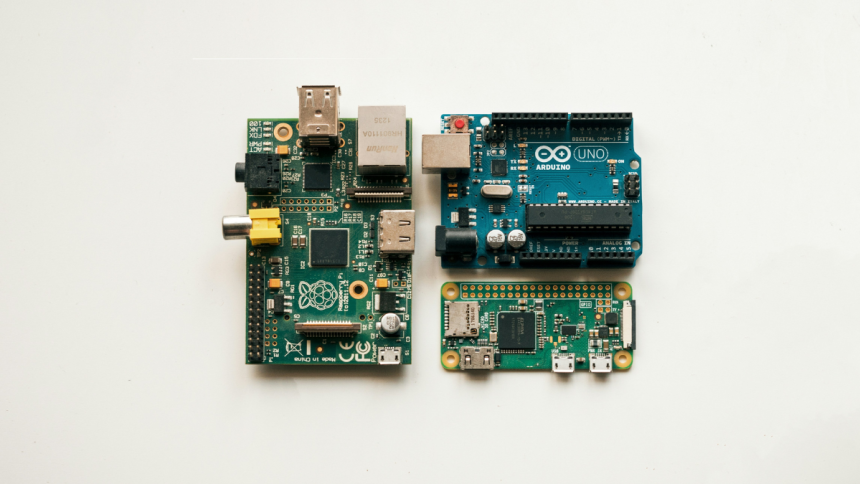A quantum computer is a device that has the ability to make use of quantum mechanics, a fundamental theory dealing with the way things behave in nature both at and below the scale of atoms. It is a very new technology that is not yet practical for real-world applications but is expected to become so in the near future. The reason why creating these computers has proven to be challenging has to do with the difficulty of engineering high-quality qubits. If the physical qubit (a basic unit of information in the field of quantum computing) isn’t adequately isolated from its environment, it will suffer from quantum decoherence, a scenario in which unwanted modifications are introduced in the calculations.
Governments have invested quite heavily and consistently into research in this field in order to decrease error rates and create longer coherence times. The tech can be used to develop and support discoveries in energy, healthcare, smart materials, environmentalism, and many more areas that are incredibly relevant to societies today. However, it can also spell trouble for technologies such as the blockchain. That means that investors might soon have to deal with additional concerns on top of keeping up with the latest news and learning about the latest ADA price prediction figures.
Quantum computing
Modern quantum theory was developed in the 1920s in order to explain the phenomena observed at atomic scales, while digital computers were introduced in the following decades in order to replace human computers so that individuals would no longer have to perform monotonous calculations. Computers had played a crucial role in wartime cryptography, while quantum physics was pivotal to the understanding of nuclear physics. Later, quantum algorithms started solving oracle problems in the 1980s, and in the 90s, theoretical computer scientist Peter Shor developed a quantum algorithm that could find the prime numbers of an integer.
Since then, numerous experiments have been performed in order to increase the number of qubits. In 2019, NASA and Google AI revealed that they had obtained a quantum advantage with the creation of a 54-qubit machine. The device can perform tasks that are impossible for any classical computer, signifying a major breakthrough in tech developments. However, some researchers doubt the validity of these claims altogether.
The developments
Some experts believe that quantum computing and artificial intelligence, another tech development that is widely discussed and debated nowadays, will get on like a house on fire. The reason for that is because the technologies will most likely be beneficial for each other, and will most likely be used to improve the other.
Quantum computing has the potential to enhance the capabilities of AI by its ability to remove all limitations related to data complexity and size, as well as enhance the speed at which tasks are completed even further. On the other hand, artificial intelligence tools will determine optimal control sequences and produce the most high-quality results possible. In fact, some have even begun discussing the concept of quantum AI, a technology that would use quantum computing in order to give machine learning algorithms a boost, resulting in the creation of AI methodology and tools that are even more powerful. As deep learning continues to advance, the understanding of quantum mechanics will also become more comprehensive.
For instance, research teams have recently discovered that when the qubits on the quantum computer are entangled, error rates are halved. This indicates that if the computers get better at harnessing the qubits and entangling them, machine-learning problems will also become more accessible to them.
The applications
While it is always fascinating to discuss the theoretical aspects of the latest technologies, it can be even more important to be aware of their practical applications. These are the features that are likely to impact people’s lives, and knowing what they will entail also means that you get a more comprehensive idea of what you can expect from the future. Apart from artificial intelligence, quantum computing will also revolutionize financial modelling. In fact, researchers believe that the entire market can be reshaped to fit quantum processing in order to get statistics matrices, such as the variance-covariance matrix, to emerge naturally.
The Haber process, a method used to synthesize ammonia from hydrogen and nitrogen, is crucial for the creation of fertilizers. Revolutionary as it is, the procedure is also harmful to the environment, amounting to over 1% of the yearly global greenhouse gas emissions. There are several types of bacteria that can perform the same process entirely naturally. However, scientists don’t know exactly how that happens yet, but quantum computing will definitely hold the key to unlocking the mysteries of this process.
The blockchain
Blockchain technology is still relatively new and has so far been almost chiefly correlated with cryptocurrencies. Experts believe that the system could be used to revolutionize many industry and business sectors by streamlining processes and creating corporate environments that are more transparent and efficient. However, quantum computing could end up impacting blockchains and disrupting the crypto trade unless the sector sets in place some updates that can limit the damage. Crypto transactions are complex and come in many different variations. Person-to-person payments are the most well-known, but there’s also shared ownership and escrow.
In the case of the first, there is a public key that acts as the crypto address associated with the recipient. A quantum computer could potentially be used to obtain the private keys from the address, allowing an unauthorized party to access all the coins. Another situation occurs when the recipient’s address is made up of a hash of the public key. Quantum computing can be used to derive private keys in this instance. The coins in p2pk and reused p2pkh addresses will be highly vulnerable to a quantum attack, approximately 4 million BTC coins. That is approximately 25% of the total supply and amounts to tens of billions of US dollars.
In order to mitigate these issues, the crypto community will need to make all unsafe addresses completely unusable in order to mitigate risks. It may seem like an overly drastic step, but it is the only way to ensure the integrity of the transactions and the continuous resilience of the blockchain, yet the complexity of achieving consensus would be significant.
As technological developments continue to become increasingly fast paced, it is important to keep up with the developments in order to understand the changes that occur in business, industry, finance, and tech.
Lynn Martelli is an editor at Readability. She received her MFA in Creative Writing from Antioch University and has worked as an editor for over 10 years. Lynn has edited a wide variety of books, including fiction, non-fiction, memoirs, and more. In her free time, Lynn enjoys reading, writing, and spending time with her family and friends.















